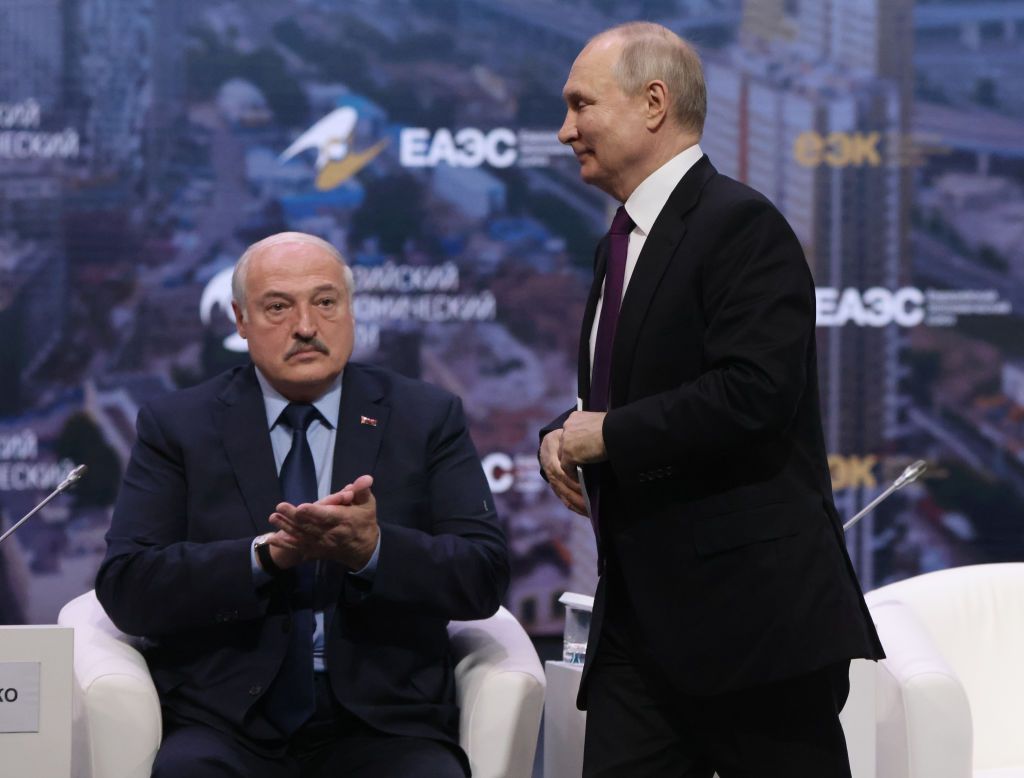ISW: Lukashenko tries 'to maintain the appearance of being a sovereign leader'

Belarusian dictator Alexander Lukashenko attempted to assert his domestic authority while upholding Kremlin narratives in his recent press conference, the Institute for the Study of War (ISW) wrote in their Aug. 25 report.
On Aug. 25, Lukashenko commented on the reported death of Wagner commander Yevgeny Prigozhin in a press conference.
"Lukashenko endorsed the Kremlin narrative line that Putin had absolutely nothing to do with Prigozhin’s 'accident,'" the ISW wrote.
However, Lukashenko also claimed that he had warned Prigozhin that continuing to push his June rebellion would lead to his death.
On Aug. 25, Lukashenko refuted claims that Wagner mercenaries were departing Belarus following reports of Prigozhin's death on Aug. 23. He insisted that Wagner would not only maintain its presence in Belarus, but expand rapidly in the coming days.
In June, Lukashenko claimed credit for brokering a deal between Prigozhin and the Kremlin to end the Wagner Group's march on Moscow. Following this, Wagner troops moved to Belarus, establishing formal ties with the Belarusian Defense Ministry.
The ISW said that Lukashenko's claims about Wagner point to his "desire to maintain the appearance of being a sovereign leader," rather than a Kremlin puppet.
Lukashenko may fear that Prigozhin's alleged death will signal to Belarusians "the Kremlin’s unilateral cancellation of agreements that he had made with Wagner," the ISW wrote.
In his attempts to portray himself as both a Russian ally and strong power broker in his own right, Lukashenko's claims at times contradicted earlier statements. He said that security guarantees for Prigozhin were never part of Wagner's deal with Belarus, despite claiming otherwise in a June 27 press conference.
"Security guarantees...were provided," Lukashenko said at the time.












